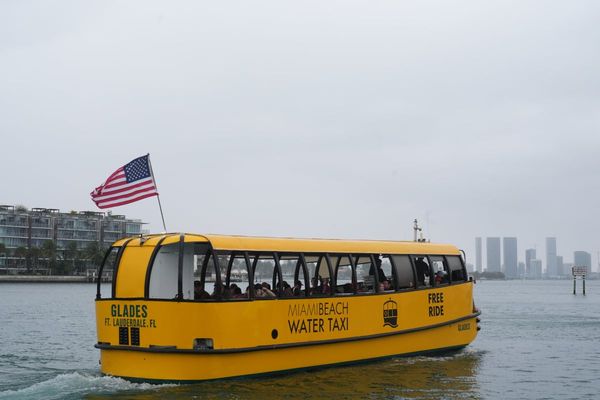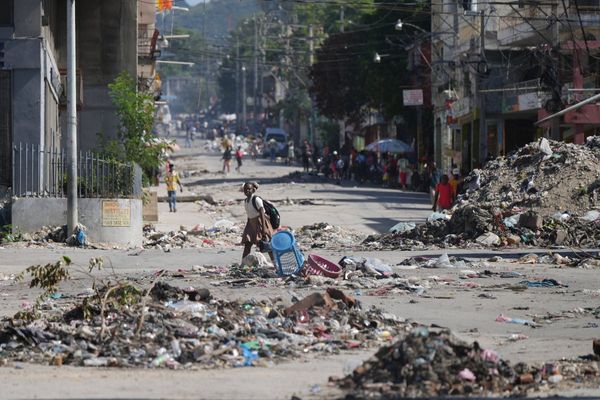
The Royal Family’s spending rose to £107 million ($135 million) last year—£21 million more than its funding from the government—despite efforts to curb costs and its publicly funded income remaining flat.
Annual accounts from the Royal Household showed that official spending rose 5% in the year to March 31 to hit the nine-figure sum.
In a news release, the royals said their spending had risen thanks to costs relating to renovations at Buckingham Palace, the death of Queen Elizabeth II and the accession of King Charles III.
A 10-year repair project at Buckingham Palace, the King’s official London residence, is expected to cost £369 million ($467 million), with the Royal Family allocating £43 million to the works last year.
The royals also blamed “the impact of the Consumer Price Index rising by 10.1%” for their increased spending last year.
The U.K. is currently embroiled in its worst cost-of-living crisis for decades, with inflation hitting 41-year highs last year thanks in part to soaring energy costs.
While the Royal Family contended with sticky inflation in the 12 months to March, its funding from taxpayers—known as the Sovereign Grant—remained unchanged at £86.3 million. It was noted in its accounts that this equated to a cost of £1.29 ($1.63) per person in the United Kingdom.
How is the Royal Family funded?
The Royal Family has several sources of income, including the Sovereign Grant, which is provided annually by the U.K. Treasury and is calculated based on a proportion of the profits of the Crown Estate—the monarchy’s property empire which is privately run. In 2022, its property portfolio was worth £15.6 billion ($19.7 billion).
The Sovereign Grant is paid to the Royal Family to fund its official royal expenditure, such as staffing costs at royal residences and royal visits, which are carried out by working members of the family.
Some of the spending over the past year included more than £1 million on helicopter flights and £146,000 on the King’s tour of Germany—his first state visit as monarch.
Between March 2022 and March 2023, the Royal Family carried out 2,700 engagements and hosted 95,000 guests at royal residences.
The royals also receive income from two collections of land and property, the Duchy of Lancaster and the Duchy of Cornwall, which are owned by the monarch and his eldest child respectively. The King and Prince William, who inherited the £1 billion Duchy of Cornwall upon the death of Queen Elizabeth II, can spend this income as they see fit.
In addition to income sourced from government grants and property, the royal family also makes money from private wealth and investment.
The Royal Family earned an income of £9.8 million last year to supplement spending from the Sovereign Grant, according to its accounting documents. This figure was 1% less than the income earned a year earlier, and less than half of what the royals were earning before the pandemic, officials said.
Cutting costs
To help cut its carbon footprint as well as its bills, King Charles has reportedly ordered his staff to turn down thermostats and switch off heating in the swimming pool at Buckingham Palace, his official residence.
The King has long been a champion of environmental causes.
In the annual accounts, it was reported that a "concerted effort" had been made across all royal residences to keep indoor temperatures at 19 degrees Celsius (66 degrees Fahrenheit) in the winter, with empty rooms being kept at 16 degrees Celsius (61 degrees Fahrenheit).
Buildings were only being heated to a minimum temperature at weekends, the documents said, while efforts were being made to “educate staff [on] the potential for reducing heat loss.”
Emissions had been reduced by 16% over the year as a result of these and other efforts, the royals said.
Michael Stevens, Keeper of the Privy Purse—who oversees the financial management of the Royal Household—said in a statement that the accounts covered an “exceptional period of transition” for the Royal Family, notably the end of Queen Elizabeth II’s historic 70-year reign and the coronation of King Charles.
“In addition to these historically significant moments, this year saw the return of many events that had been missing from the calendar throughout the pandemic,” he said. “Like other organizations, the Royal Household has not been immune to the impacts of the joint challenges of the pandemic and inflationary pressures.”







